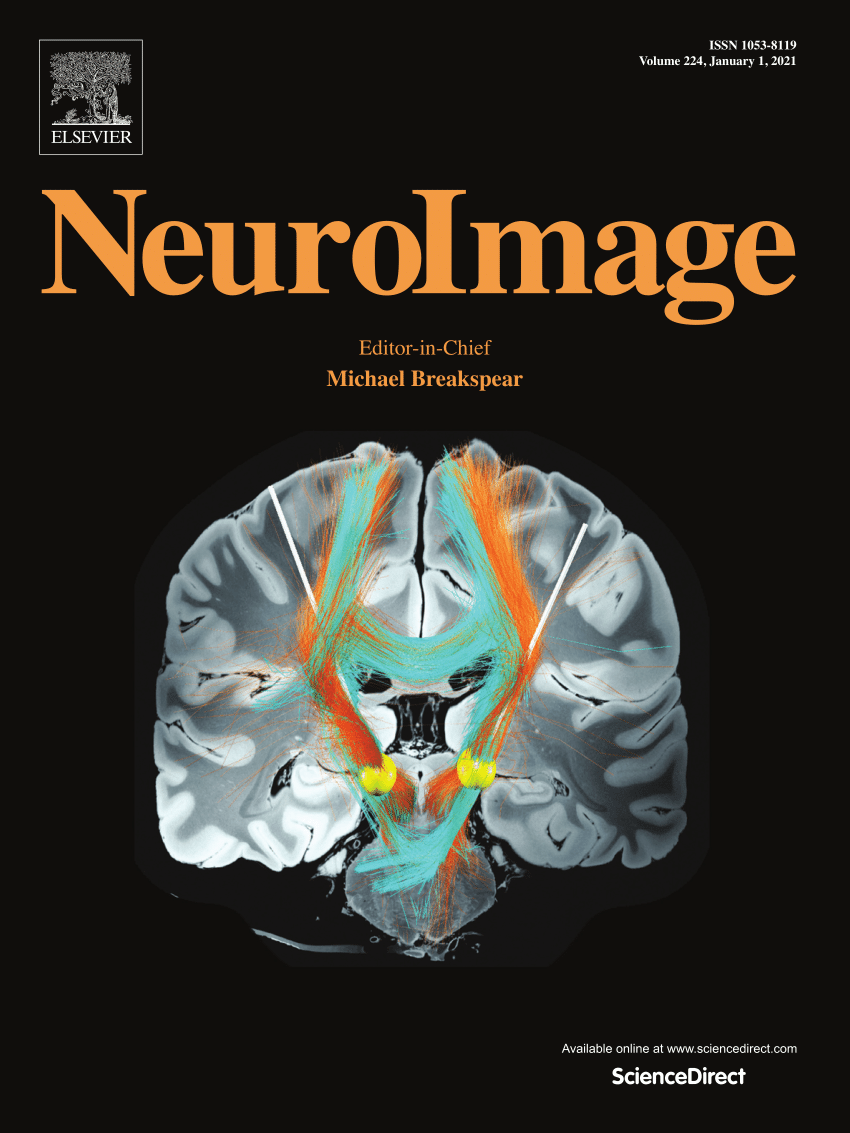The impact of methylphenidate on choice impulsivity is inversely associated with corpus callosum fiber integrity across sexes
IF 4.7
2区 医学
Q1 NEUROIMAGING
引用次数: 0
Abstract
Background
Choice impulsivity represents preference towards smaller immediate rewards over larger delayed rewards. Extensive literature demonstrates that choice impulsivity can be manipulated using dopaminergic agonists such as methylphenidate (MPH), and that females exhibit elevated choice impulsivity compared to males. Sex differences are also frequently reported with respect to brain white matter (WM) fiber integrity. It has yet to be determined whether sex differences also exist in the impact of MPH on choice impulsivity, and whether these putative differences are accounted for by the integrity of differential WM fibers.
Methods
Forty-eight healthy young adults completed the delay discounting (DD) task twice during MRI-DTI scans after receiving either MPH or placebo in a double-blind, placebo-controlled, within-subject design. WM fiber integrity was assessed using automated fiber quantification (AFQ) and tract-based spatial statistics (TBSS).
Results
Compared to placebo, MPH yielded significantly reduced choice impulsivity in males but not in females. DTI data revealed reduced integrity in multiple WM fibers in females compared to males. Interestingly, the impact of MPH on choice impulsivity was negatively associated with fiber integrity in the forceps major of the corpus callosum for males only and positively associated with fiber integrity in the forceps minor of the corpus callosum for females only.
Conclusions
Taken together, results uncover sex-specific effects of MPH on choice impulsivity, accounted for by inverse associations between choice impulsivity under MPH and the structural integrity of distinct segments of the corpus callosum. These findings highlight the need to consider sex differences in the neurobiological mechanisms of impulsivity.
哌醋甲酯对选择冲动的影响与不同性别的胼胝体纤维完整性成反比
背景选择冲动性表示对较小的即时奖励的偏好大于较大的延迟奖励。大量的文献表明,选择冲动可以通过多巴胺能激动剂如哌醋甲酯(MPH)来控制,并且与男性相比,女性表现出更高的选择冲动。性别差异在脑白质(WM)纤维完整性方面也经常被报道。性别差异是否也存在于MPH对选择冲动的影响中,以及这些假定的差异是否可以由不同WM纤维的完整性来解释,这些还有待确定。方法采用双盲、安慰剂对照、受试者内设计,48名健康青年在接受MPH或安慰剂治疗后,在MRI-DTI扫描期间完成两次延迟折扣(DD)任务。采用自动纤维定量(AFQ)和基于束的空间统计(TBSS)对WM纤维完整性进行了评估。结果与安慰剂相比,MPH显著降低了男性的选择冲动,但在女性中没有。DTI数据显示,与男性相比,女性多个WM纤维的完整性降低。有趣的是,MPH对选择冲动的影响仅与男性胼胝体大钳的纤维完整性呈负相关,而仅与女性胼胝体小钳的纤维完整性呈正相关。综上所述,研究结果揭示了MPH对选择冲动的性别特异性影响,这可以通过MPH下的选择冲动与胼胝体不同部分的结构完整性之间的负相关来解释。这些发现强调了在冲动的神经生物学机制中考虑性别差异的必要性。
本文章由计算机程序翻译,如有差异,请以英文原文为准。
求助全文
约1分钟内获得全文
求助全文
来源期刊

NeuroImage
医学-核医学
CiteScore
11.30
自引率
10.50%
发文量
809
审稿时长
63 days
期刊介绍:
NeuroImage, a Journal of Brain Function provides a vehicle for communicating important advances in acquiring, analyzing, and modelling neuroimaging data and in applying these techniques to the study of structure-function and brain-behavior relationships. Though the emphasis is on the macroscopic level of human brain organization, meso-and microscopic neuroimaging across all species will be considered if informative for understanding the aforementioned relationships.
 求助内容:
求助内容: 应助结果提醒方式:
应助结果提醒方式:


